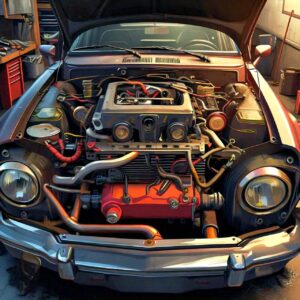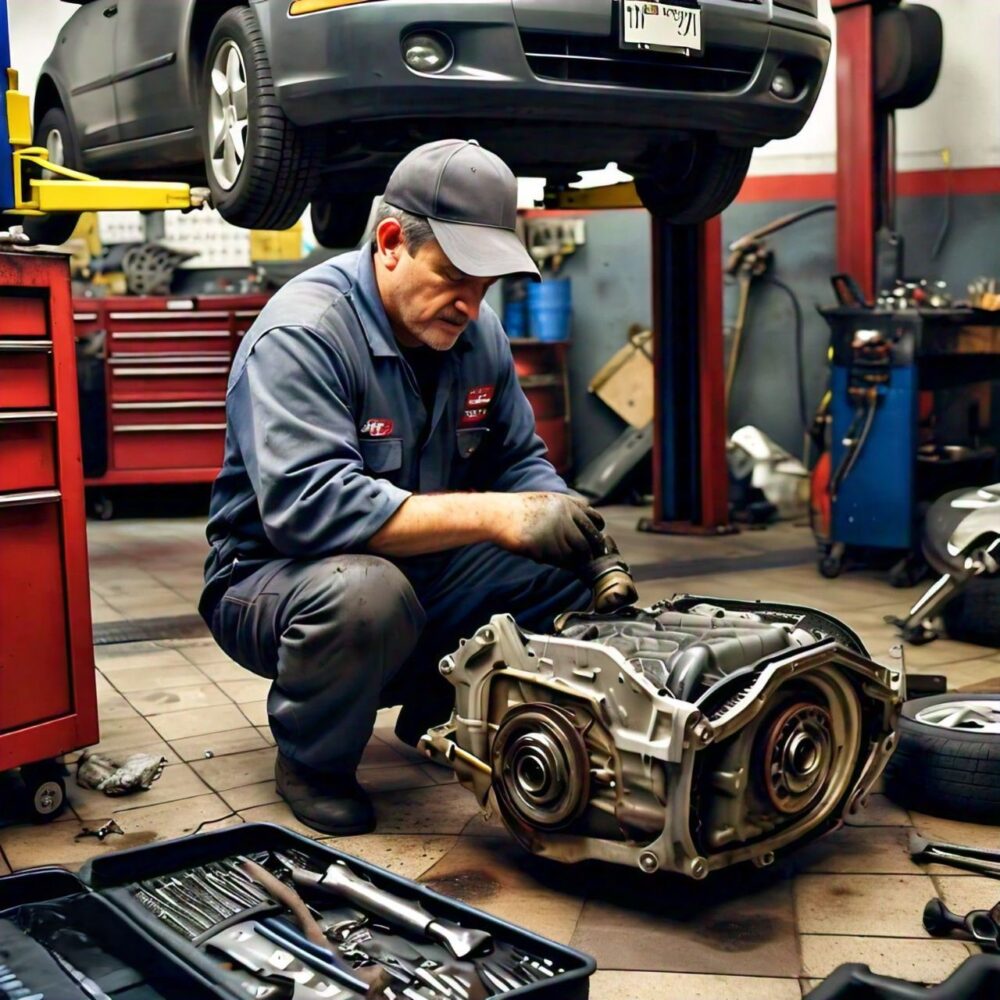When you own a car, it’s important to keep it in good shape. Even if you take care of it, problems can still come up. In this blog, we’ll talk about some common issues that can happen and what you can do to fix them.
Engine Problems
Car engine problems can be frustrating and disruptive. Common issues include the engine overheating, running rough, or losing power. Overheating can be caused by low coolant levels or a leak in the radiator. Rough idling can be due to a dirty air filter or a clogged throttle body. Loss of power can be caused by a blockage in the fuel system or a problem with the ignition system, such as faulty spark plugs or ignition coils.
To fix these problems, start by checking the coolant levels and radiator for leaks or blockages. Inspect the air filter and clean the throttle body to ensure proper airflow. Examine the fuel system for clogs or leaks, and test the ignition system components to ensure they’re working properly. Also, check the exhaust system for any restrictions or leaks.
If you’re not comfortable troubleshooting and repairing these issues yourself, take your car to a professional repair shop. The mechanics there can use specialized tools and equipment to diagnose the problem and perform the necessary repairs to get your engine running smoothly again.
Electrical System Malfunctions
Electrical system malfunctions can cause a range of problems in your vehicle. Common issues include faulty wiring, blown fuses, and dead batteries. These can cause issues like lights or accessories not working, engines stalling or failing to start, and strange noises or burning smells.
To troubleshoot electrical system problems, start by checking the basics like fuses and batteries. If you’re not sure what’s wrong, consult a professional mechanic who can use specialized tools to diagnose the issue. They can test the electrical system, identify the source of the problem, and perform the necessary repairs to get your vehicle running smoothly and safely.
Some common electrical system malfunctions include:
– Dead batteries or alternators
– Faulty starters or solenoids
– Blown fuses or tripped circuit breakers
– Short circuits or faulty wiring
– Malfunctioning sensors or computers
If you’re experiencing any of these issues, don’t hesitate to seek professional help to avoid further damage or safety risks.
Transmission Troubles:
 Transmission problems can be complex and detrimental to your vehicle’s performance if left unaddressed. Common signs of transmission issues include slipping gears, fluid leaks, and unusual noises such as grinding, whining, or clunking sounds. Regularly checking the transmission fluid level and condition is crucial to addressing these issues effectively. Check the fluid level monthly and top it off as needed.
Transmission problems can be complex and detrimental to your vehicle’s performance if left unaddressed. Common signs of transmission issues include slipping gears, fluid leaks, and unusual noises such as grinding, whining, or clunking sounds. Regularly checking the transmission fluid level and condition is crucial to addressing these issues effectively. Check the fluid level monthly and top it off as needed.
Also, look for signs of fluid leaks around the transmission pan and lines. If you notice any leaks, address them promptly to prevent further damage. If you experience unusual symptoms while driving, such as delayed shifting, rough acceleration, or difficulty shifting into gear, consult a professional mechanic for a comprehensive diagnosis and repair. Ignoring transmission problems can lead to costly repairs down the line, so it’s essential to address them promptly. Additionally, preventive measures like regular transmission fluid changes, proper vehicle maintenance, and avoiding excessive towing or heavy loads can help extend the lifespan of your transmission and prevent future problems. By taking proactive steps, you can ensure a smoother and more reliable driving experience, avoid costly repairs, and maintain the overall health and performance of your vehicle.
Fluid Leaks and Maintenance
Fluid leaks are a common indicator of underlying issues in a vehicle’s systems, and addressing them promptly is crucial to prevent further damage and costly repairs. To effectively identify and address fluid leaks:
1. Identify the leak by tracing puddles or stains back to their source, taking note of the location and severity of the leak.
2. Determine the type of fluid based on its color and consistency, as different fluids have distinct characteristics (e.g., oil leaks are dark brown or black, coolant leaks are green, orange, or pink, and brake fluid leaks are clear or light brown).
3. Perform regular checks as part of routine maintenance, inspecting fluid levels and looking for signs of leakage around hoses, gaskets, and seals, as well as any other potential sources of leaks.
4. Address leaks promptly, as ignoring them can lead to further damage, costly repairs, and even safety hazards.
5. Follow manufacturer recommendations for fluid checks and replacements, adhering to the recommended schedule and guidelines to ensure optimal performance and extend the lifespan of your vehicle.
6. Keep accurate records of fluid checks and repairs to track your vehicle’s maintenance history and identify potential patterns or issues.
7. Prioritize safety and consult a professional mechanic for complex or unfamiliar repairs, as attempting to address issues without proper knowledge and expertise can lead to further damage or safety risks.
By staying vigilant and addressing fluid leaks promptly, you can prevent potential issues, ensure optimal performance, and maintain the overall health and safety of your vehicle.
Conclusion
Car repair issues are inevitable, but identifying and addressing them promptly can prevent further damage and costly repairs. Common issues include engine problems, electrical system malfunctions, transmission troubles, and fluid leaks. By performing regular maintenance checks, inspecting fluids, and addressing leaks promptly, you can ensure optimal performance and extend the lifespan of your vehicle. Prioritize safety and consult a professional mechanic for complex or unfamiliar repairs. Stay vigilant, and keep your vehicle running smoothly and safely. Remember, proactive maintenance and timely repairs are key to a reliable and enjoyable driving experience.

